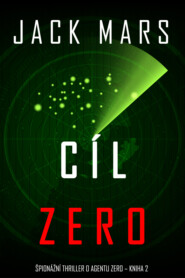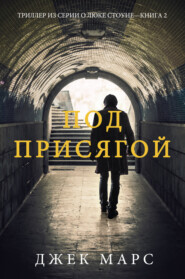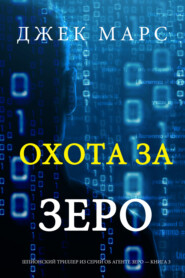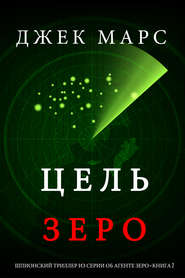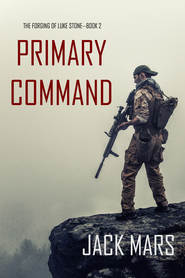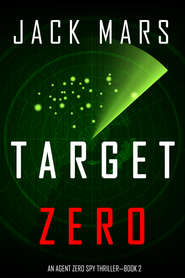По всем вопросам обращайтесь на: info@litportal.ru
(©) 2003-2025.
✖
Our Sacred Honor
Настройки чтения
Размер шрифта
Высота строк
Поля
Luke looked at Trudy, who sat across the aisle from him. She was the only one besides Luke who was still awake.
Behind her, Swann lay curled in a ball across two seats. He was fast asleep. In the row behind Swann, Ed Newsam was doing the same thing. Ed was rock solid, of course. But Luke had some reservations about Swann. It wasn’t Swann’s fault – he had been traumatized by his time in ISIS captivity. He had changed. He was not the same wisecracking, sarcastic idiot he had once been. He was more reserved now, more careful. He spoke a lot less. On the surface, that might seem like a good thing – wisdom, maybe, or maturity. But Luke suspected it might be lack of confidence.
Swann had been rattled to his core. When the heat came, when the stress level amped up, it remained to be seen how well he would perform.
Luke looked across at Trudy. She had been asleep for a little while, curled into a ball. Now she was awake again, gazing out her dark window. From here, all Luke could see was a blinking light on the wing.
“Dark out there,” Luke said. “A whole lot of nothing.”
“Yes.”
“What are you looking at?”
“Exactly that. Nothing.”
He paused. It was awkward between them. He supposed it always would be. He didn’t want to get into it with her now, their shared time together, because Swann and Ed were here. Swann and Ed were not involved in this, and he didn’t want them to wake up in the middle of it.
“I remember the last time we went on a long flight together,” Luke said.
She nodded. “So do I. Korea. You guys had just broken me out of prison. That was a crazy time. I thought my life was over. I didn’t realize it was just beginning.”
“How was your time on the run?”
She shrugged. She did not seem eager to look at him. “I wouldn’t choose to do it again. But all in all, it wasn’t terrible. I learned a lot. I learned not to get so attached to a specific identity. Trudy Wellington, who is that? One possibility out of hundreds. I dyed my hair blonde, just like you suggested. I also dyed it black. At one point, I even shaved my head.
“You know I fell in with a bunch of left-wing protestors in Spain for a while? I really did. I learned Spanish in high school, and Spain was a safe place to disappear. No one had any idea who I was. They sent me for EMT training, so I could become a street medic. People get hurt at these protests a lot – usually minor things, but the ambulances can’t get to them. Street medics are right there, in the middle of the action. I saw quite a few broken limbs and cracked skulls. I thought of Ed the whole time I was doing it – I always had a lot of respect for his medical skills. Even more so now.”
She turned and faced Luke. “I learned a lot about myself, things I needed to learn.”
“Name a big one,” Luke said.
She smiled. “I learned that I don’t need to give myself away to older men anymore. What was I looking for, protection? Approval? It was a silly, little girl habit. I’ve been sticking with men my own age or younger the past couple of years, and it’s been pretty nice. I’ve decided I prefer men who aren’t trying to teach me anything.”
Ouch. Now Luke smiled. Words, however, seemed to escape him.
“I also learned I was a survivor.”
“That’s big,” Luke said.
“Yeah,” she said. “But not as big as the man thing.”
CHAPTER TWELVE
1:45 p.m. Eastern Standard Time
The Situation Room
The White House, Washington, DC
“What time is it there?” Susan said.
Kurt looked at his watch. “Ah, about a quarter to nine at night. We’re scheduled to talk to him at nine.”
Susan nodded. “Okay. Give me the elevator pitch.”
She looked around the room, packed as usual. Kurt stood at the far end of the oblong table, in his customary position. Haley Lawrence sat at the table among a sea of generals and admirals, a few of them women, Susan was gratified to notice. The edges of the room were full of aides and assistants.
“We’ve got a crisis unfolding,” Kurt said. “And we’ve got to step carefully. That’s the message.”
Susan made a spinning motion with her hand, as if to say, Get on with it.
“As most people here will know, Israel has been a strategic ally of ours since its founding in 1948. In a constantly changing world, only a handful of countries – England, Canada, France, India, Saudi Arabia…”
Kurt waited and rolled his eyes as a few people booed the mention of the Saudis.
“…Morocco, a few others – have been with us longer. As a relatively small country in a volatile region, Israel’s position is tenuous at best, and over the decades tensions have repeatedly erupted into open conflict with a host of regional actors. In the early days, these conflicts were the result of attacks by neighboring countries such as Egypt, Jordan, and Syria. In more recent years, the conflicts have focused on the plight of the Palestinians who were displaced when Israel was created, and who live in a sort of political limbo in the West Bank and the Gaza Strip, lands that Israel seized during the Six Day War in 1967. Every international body, indeed every country on Earth besides Israel and United States, considers Israel the occupying power in these territories.
“Islamic terrorist organizations have been using this situation as a fundraising tool for two generations. Also, Muslim countries can whip up anti-Israel sentiment any time it fits their purposes, as long as the Palestinians remain in limbo.”
“What is our policy on this?” someone along the back asked.
Kurt nodded. “Sure, good question. Just so we’re all clear. Our official policy is that there is an ongoing negotiation, the result of which will be that the West Bank and Gaza eventually become a country, probably called Palestine, and that Palestine and Israel will co-exist peacefully and may even become regional partners. In the meantime, we recognize Israel’s right to secure its borders and prevent attacks by Palestinians on Israeli civilians. We do not recognize Israel’s right to build so-called settlements in Palestinian territory, nor do we recognize Jerusalem as the capital of Israel. We consider it a partitioned city – the western half in Israel, the eastern half in the West Bank.”
“And Yonatan?”
Kurt glanced at a sheet of paper on the table in front of him. “Yonatan Stern. Sixty-three years old. Married, father of five, grandfather of eight. As a young man, he was a commando with the elite Sayeret Matkal unit of the Israeli Defense Forces. In 1976, he was one of the leaders of the successful raid on Entebbe Airport in Uganda, where Israeli commandos rescued more than one hundred Israeli hostages taken from a hijacked plane.
“Since he left the military, he has spent almost his entire adult life in Israeli politics as a war hawk and a hardliner. At the moment, he appears to sit atop an unassailable majority in the Knesset. His vulnerability is that he is currently the subject of at least four separate police investigations into corruption – ranging from receiving hundreds of thousands of dollars’ worth of gifts from wealthy supporters, all the way up to doling out preferential no-bid government military contracts and manipulating the Israeli telecom industry on behalf of friends.”
Kurt shook his head and whistled. “Stern is in legal jeopardy. It’s real, and it has been consuming much of his attention in recent months. He’ll be lucky to stay out of jail. And he has problems on the diplomatic front as well. While traveling in Europe three weeks ago, he was caught speaking into an open microphone, joking about the idea of a two-state solution with the Palestinians, seeming to dismiss it out of hand. Apparently, he didn’t know the mic was on, and he said the European Union was crazy – yes, he used the word crazy – for worrying about the Palestinians. You can imagine how well this little faux pas has played in European capitals and among the Israeli left wing.”
He looked at Susan. “To be clear, Yonatan Stern is not an ideal partner. But I think we also need to recognize that he isn’t Prime Minister for life, and there are many, many elements in Israeli society that are seeking a peaceful solution to the ongoing problems. Israel has been, and continues to be, an important ally of the United States, and their civilian population is under attack. There is no telling at this moment what the extent of that attack is likely to be. But if Iran has nuclear weapons, as they claim…”
Susan nodded. “Of course. My problem isn’t with Israel. I understand the relationship is much larger than Yonatan.”
“Good. All we need from him at this moment is restraint, which is not necessarily his strong suit. He’s a hammer, and everywhere he looks, he sees nails. But he has to give us time to find and eliminate those nukes. Shall we talk to him?”
She shrugged. “Let’s do it.”
* * *
“I hope you’re happy.”
Yonatan Stern’s deep disembodied rumble came over the black speakerphone device at the center of the conference table. “I hope this pleases you.”
Susan looked at Kurt and shook her head.
“Why would this please me, Yonatan?”
Behind her, Swann lay curled in a ball across two seats. He was fast asleep. In the row behind Swann, Ed Newsam was doing the same thing. Ed was rock solid, of course. But Luke had some reservations about Swann. It wasn’t Swann’s fault – he had been traumatized by his time in ISIS captivity. He had changed. He was not the same wisecracking, sarcastic idiot he had once been. He was more reserved now, more careful. He spoke a lot less. On the surface, that might seem like a good thing – wisdom, maybe, or maturity. But Luke suspected it might be lack of confidence.
Swann had been rattled to his core. When the heat came, when the stress level amped up, it remained to be seen how well he would perform.
Luke looked across at Trudy. She had been asleep for a little while, curled into a ball. Now she was awake again, gazing out her dark window. From here, all Luke could see was a blinking light on the wing.
“Dark out there,” Luke said. “A whole lot of nothing.”
“Yes.”
“What are you looking at?”
“Exactly that. Nothing.”
He paused. It was awkward between them. He supposed it always would be. He didn’t want to get into it with her now, their shared time together, because Swann and Ed were here. Swann and Ed were not involved in this, and he didn’t want them to wake up in the middle of it.
“I remember the last time we went on a long flight together,” Luke said.
She nodded. “So do I. Korea. You guys had just broken me out of prison. That was a crazy time. I thought my life was over. I didn’t realize it was just beginning.”
“How was your time on the run?”
She shrugged. She did not seem eager to look at him. “I wouldn’t choose to do it again. But all in all, it wasn’t terrible. I learned a lot. I learned not to get so attached to a specific identity. Trudy Wellington, who is that? One possibility out of hundreds. I dyed my hair blonde, just like you suggested. I also dyed it black. At one point, I even shaved my head.
“You know I fell in with a bunch of left-wing protestors in Spain for a while? I really did. I learned Spanish in high school, and Spain was a safe place to disappear. No one had any idea who I was. They sent me for EMT training, so I could become a street medic. People get hurt at these protests a lot – usually minor things, but the ambulances can’t get to them. Street medics are right there, in the middle of the action. I saw quite a few broken limbs and cracked skulls. I thought of Ed the whole time I was doing it – I always had a lot of respect for his medical skills. Even more so now.”
She turned and faced Luke. “I learned a lot about myself, things I needed to learn.”
“Name a big one,” Luke said.
She smiled. “I learned that I don’t need to give myself away to older men anymore. What was I looking for, protection? Approval? It was a silly, little girl habit. I’ve been sticking with men my own age or younger the past couple of years, and it’s been pretty nice. I’ve decided I prefer men who aren’t trying to teach me anything.”
Ouch. Now Luke smiled. Words, however, seemed to escape him.
“I also learned I was a survivor.”
“That’s big,” Luke said.
“Yeah,” she said. “But not as big as the man thing.”
CHAPTER TWELVE
1:45 p.m. Eastern Standard Time
The Situation Room
The White House, Washington, DC
“What time is it there?” Susan said.
Kurt looked at his watch. “Ah, about a quarter to nine at night. We’re scheduled to talk to him at nine.”
Susan nodded. “Okay. Give me the elevator pitch.”
She looked around the room, packed as usual. Kurt stood at the far end of the oblong table, in his customary position. Haley Lawrence sat at the table among a sea of generals and admirals, a few of them women, Susan was gratified to notice. The edges of the room were full of aides and assistants.
“We’ve got a crisis unfolding,” Kurt said. “And we’ve got to step carefully. That’s the message.”
Susan made a spinning motion with her hand, as if to say, Get on with it.
“As most people here will know, Israel has been a strategic ally of ours since its founding in 1948. In a constantly changing world, only a handful of countries – England, Canada, France, India, Saudi Arabia…”
Kurt waited and rolled his eyes as a few people booed the mention of the Saudis.
“…Morocco, a few others – have been with us longer. As a relatively small country in a volatile region, Israel’s position is tenuous at best, and over the decades tensions have repeatedly erupted into open conflict with a host of regional actors. In the early days, these conflicts were the result of attacks by neighboring countries such as Egypt, Jordan, and Syria. In more recent years, the conflicts have focused on the plight of the Palestinians who were displaced when Israel was created, and who live in a sort of political limbo in the West Bank and the Gaza Strip, lands that Israel seized during the Six Day War in 1967. Every international body, indeed every country on Earth besides Israel and United States, considers Israel the occupying power in these territories.
“Islamic terrorist organizations have been using this situation as a fundraising tool for two generations. Also, Muslim countries can whip up anti-Israel sentiment any time it fits their purposes, as long as the Palestinians remain in limbo.”
“What is our policy on this?” someone along the back asked.
Kurt nodded. “Sure, good question. Just so we’re all clear. Our official policy is that there is an ongoing negotiation, the result of which will be that the West Bank and Gaza eventually become a country, probably called Palestine, and that Palestine and Israel will co-exist peacefully and may even become regional partners. In the meantime, we recognize Israel’s right to secure its borders and prevent attacks by Palestinians on Israeli civilians. We do not recognize Israel’s right to build so-called settlements in Palestinian territory, nor do we recognize Jerusalem as the capital of Israel. We consider it a partitioned city – the western half in Israel, the eastern half in the West Bank.”
“And Yonatan?”
Kurt glanced at a sheet of paper on the table in front of him. “Yonatan Stern. Sixty-three years old. Married, father of five, grandfather of eight. As a young man, he was a commando with the elite Sayeret Matkal unit of the Israeli Defense Forces. In 1976, he was one of the leaders of the successful raid on Entebbe Airport in Uganda, where Israeli commandos rescued more than one hundred Israeli hostages taken from a hijacked plane.
“Since he left the military, he has spent almost his entire adult life in Israeli politics as a war hawk and a hardliner. At the moment, he appears to sit atop an unassailable majority in the Knesset. His vulnerability is that he is currently the subject of at least four separate police investigations into corruption – ranging from receiving hundreds of thousands of dollars’ worth of gifts from wealthy supporters, all the way up to doling out preferential no-bid government military contracts and manipulating the Israeli telecom industry on behalf of friends.”
Kurt shook his head and whistled. “Stern is in legal jeopardy. It’s real, and it has been consuming much of his attention in recent months. He’ll be lucky to stay out of jail. And he has problems on the diplomatic front as well. While traveling in Europe three weeks ago, he was caught speaking into an open microphone, joking about the idea of a two-state solution with the Palestinians, seeming to dismiss it out of hand. Apparently, he didn’t know the mic was on, and he said the European Union was crazy – yes, he used the word crazy – for worrying about the Palestinians. You can imagine how well this little faux pas has played in European capitals and among the Israeli left wing.”
He looked at Susan. “To be clear, Yonatan Stern is not an ideal partner. But I think we also need to recognize that he isn’t Prime Minister for life, and there are many, many elements in Israeli society that are seeking a peaceful solution to the ongoing problems. Israel has been, and continues to be, an important ally of the United States, and their civilian population is under attack. There is no telling at this moment what the extent of that attack is likely to be. But if Iran has nuclear weapons, as they claim…”
Susan nodded. “Of course. My problem isn’t with Israel. I understand the relationship is much larger than Yonatan.”
“Good. All we need from him at this moment is restraint, which is not necessarily his strong suit. He’s a hammer, and everywhere he looks, he sees nails. But he has to give us time to find and eliminate those nukes. Shall we talk to him?”
She shrugged. “Let’s do it.”
* * *
“I hope you’re happy.”
Yonatan Stern’s deep disembodied rumble came over the black speakerphone device at the center of the conference table. “I hope this pleases you.”
Susan looked at Kurt and shook her head.
“Why would this please me, Yonatan?”






